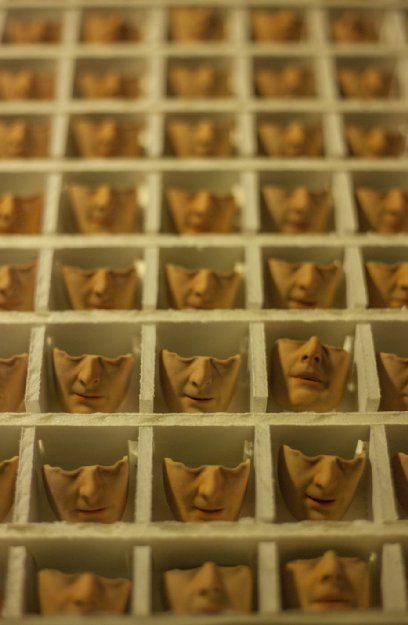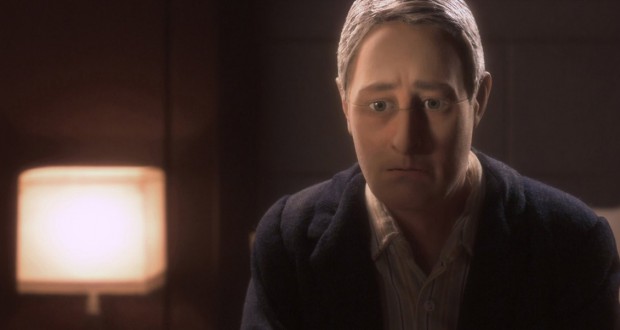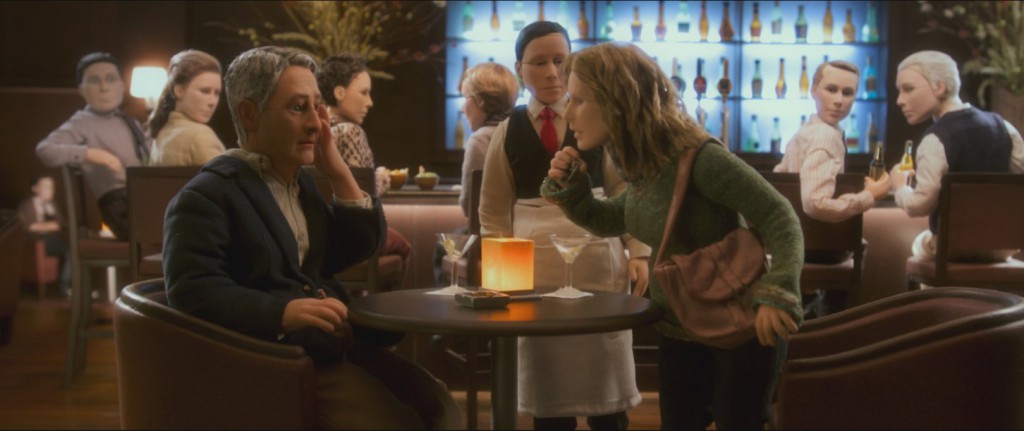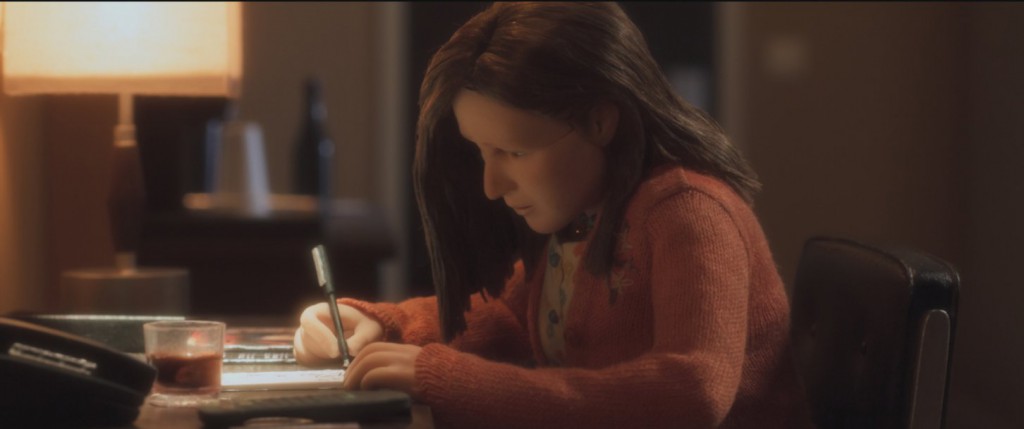If Anomalisa is not in my top 5 films of the year by the conclusion of 2016, it will have been a damn good year. Put together over three years by indie auteur Charlie Kaufman (Being John Malkovich, Eternal Sunshine…) and stop-motion director Duke Johnson, Anomalisa is a marvellously original film: part midlife crisis drama, part romance, part horror. I was laughing, I was engaged, I was moved, and I was terrified. It is films like this that I go to the cinema for.
The formal aspects of a world made of mass-produced puppets play into the drama wonderfully. At the Fregoli Hotel in Cincinnati, Michael Stone (David Thewlis) is giving a business talk on customer services. A man renowned for innovating the field so that people are able to connect with their customers all the better over the phone, he feels utterly isolated. Everyone is indistinguishable to him. They are literally all the same. Look the same, sound the same, say the same things. Then he meets Lisa (Jennifer Jason Leigh). The unsettling realisation that all the puppets but two have the same faces (or I am just dense… I did not catch the Fregoli reference…) and how only these two characters don’t feel like automatons despite them all being crafted entities is a testament to how well the voice performances and animation performances harmonise.
I have not seen such a realistic sex scene for a while
The stop-motion animation is a pleasure to see. The sets and surroundings are wonderfully tactile in appearance, there’s a material feel to everything that is so lacking in most cinema. No doubt this is heightened by the uncanny element of such clearly constructed humans plodding about. It is the human puppets that really draw the eye. I have not seen mannequins built like this before, with no apparent seams except very prominent ones where the various facial fixtures attach to make the different expressions. Of course, Kaufman and Johnson play on this as the attempts to unsettle heighten in the second half, but it is amazing how quickly one stops seeing the difference, and the scarily life-like movements of the puppets become normal rather than attention-grabbing.
 Some may sniff at being so taken with puppets but I’ve not seen a love story this good for some time. It all stems from a deep need for human contact in a world of generic people and insulating environments. I have not seen such a realistic sex scene for a while either. I know Team America beat them to the gag, but frankly, once the novelty of seeing puppets copulate has diminished, you are left with a depiction of sex that is clumsy and honest, quite divorced from the ridiculous displays we often get in movies.
Some may sniff at being so taken with puppets but I’ve not seen a love story this good for some time. It all stems from a deep need for human contact in a world of generic people and insulating environments. I have not seen such a realistic sex scene for a while either. I know Team America beat them to the gag, but frankly, once the novelty of seeing puppets copulate has diminished, you are left with a depiction of sex that is clumsy and honest, quite divorced from the ridiculous displays we often get in movies.
Carbon copy rooms housing carbon copy people quickly develops into conspiratorial anxiety
It’s the move from emotional resonance to distance, abandonment and despair that is so effective in making this a troubling film. I can imagine many won’t agree with my assessment of Anomalisa as having a streak of horror in its DNA but the quirkiness of the carbon copy rooms housing carbon copy people quickly develops into conspiratorial anxiety. Once the love story peaks, it is with spiralling despair that we see the link between two people muddy as they realise that perhaps they haven’t found someone so unique and individual after all. This goes in tandem with the cruel emotional disregard that Michael exhibits towards every other human as he can’t find anyone he genuinely recognises. He is alone and cut off, walking through the dingy corridors of a hotel surrounded by strangers who share the face of his wife and child back home, just as indistinguishable to him as everyone else. I found it chilling.
Verdict: I knew puppets could be creepy but I didn’t know they could be so human too. Go see Anomalisa while you can.
 Pop Verse Pop Culture Universe
Pop Verse Pop Culture Universe








